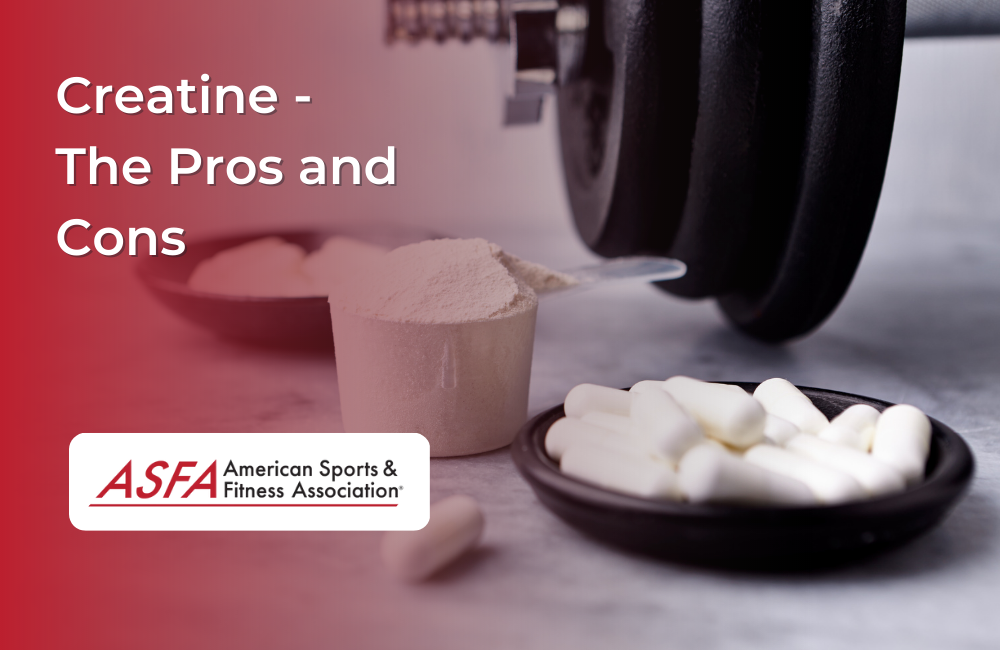Creatine is a popular dietary supplement used by athletes and bodybuilders to increase muscle mass and improve athletic performance. While it is widely used, there are both pros and cons of creatine that should be considered before using it. In this blog post, we will examine the pros of creatine and the cons of creatine to help you decide if it is the right choice for you.
What is Creatine?
Creatine is a naturally occurring compound that is found in the human body, as well as in many other types of food, such as meat and fish. It plays an essential role in providing energy to cells and muscles, and has been used for years by athletes and bodybuilders to increase strength and endurance. Creatine helps the body to produce more ATP (adenosine triphosphate), which is the fuel used by muscle cells during exercise.
Creatine can be found naturally in your body, however, it can also be taken in supplement form. The most popular form of supplement is creatine monohydrate, which is the purest form of creatine and is widely available. Other forms include creatine ethyl ester, creatine citrate and creatine hydrochloride. The main difference between these supplements is their absorption rate, with creatine monohydrate being the most popular due to its high absorption rate.
Creatine has also been studied extensively for its potential health benefits. Studies suggest that it may help improve muscle strength, muscle mass and exercise performance. It may also improve brain function, reduce fatigue and improve overall health. However, it's important to note that most of these studies have only been done on animals or on small groups of people, so further research is needed to fully understand the effects of creatine on humans.
In general, taking a creatine supplement appears to be safe for healthy adults who are looking to enhance their athletic performance or body composition. However, it's important to speak to your doctor before taking any supplement, especially if you have any pre-existing medical conditions or are pregnant or breastfeeding.
The Pros of Creatine
Creatine is a naturally occurring compound found in the body, mainly in muscle tissue. It is also a popular dietary supplement among athletes and bodybuilders, as it has been shown to have numerous benefits.
The most widely studied and accepted benefit of creatine is its ability to increase physical performance. This can be especially helpful for those who participate in strength and power sports, like weightlifting or sprinting. Creatine has been shown to improve muscular strength, endurance, and power output. It can also help reduce fatigue during exercise, allowing athletes to train harder and longer.
Creatine can also help with muscle recovery. Studies have shown that it can reduce muscle soreness following exercise and decrease the time needed for muscles to recover between workouts. It may also protect against muscle breakdown caused by intense training, helping athletes reach their goals more quickly.
Finally, creatine may have some benefits for overall health and well-being. Research suggests that it may help increase muscle mass and slow the aging process. It has also been linked to improved cognitive function, better heart health, and stronger bones.
Overall, creatine appears to offer several positive benefits for those looking to improve their physical performance and health. While more research is needed to confirm these findings, there are already plenty of reasons to consider adding creatine to your routine.
The Cons of Creatine
Creatine has been linked to a few potential side effects, although these are usually mild and short-lived. These include:
1. Digestive Issues – Creatine may cause digestive issues such as nausea, diarrhea, cramping, and stomach discomfort. To help combat this, it’s best to take your creatine with food and plenty of water.
2. Weight Gain – Creatine is known to draw in water and cause you to gain a few pounds of water weight. This is generally temporary and will go away when you stop taking the supplement.
3. Kidney Damage – High doses of creatine have been linked to kidney damage in some studies. To avoid any potential problems, make sure to stay within the recommended dosage levels and get regular kidney checkups while using the supplement.
4. Muscle Cramps – Some users report experiencing muscle cramps while taking creatine, although this is usually mild and goes away over time. Be sure to drink plenty of fluids and stretch regularly when supplementing with creatine.
Overall, there are some potential side effects associated with creatine supplementation, but most people don’t experience any serious problems. As long as you follow the recommended dosage and don’t exceed it, you should be able to enjoy the benefits of taking creatine without worrying about any negative consequences.





